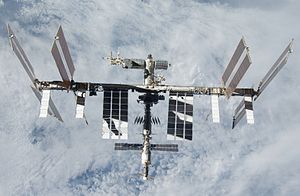I was torn about which of Tim's journal entries I should post here,
and I finally settled on two, one of which is
presented here and the other I posted earlier.
Today is Memorial Day, 2010. Like every Memorial Day for the past eight years, I’ll be at Fort Rosecrans National Cemetery honoring the men and women who gave Their Last Full Measure of Devotion to this country, as well as those who served and were blessed to have lived beyond their service years and died in the Land of the Free. Like my father Carl P.J. Forkes and my brother Carl C. Forkes, who is interred at Fort Rosecrans.
My favorite snipe at the Navy men in the family — and my friends who served in the Navy — They chose to serve their nation in the Navy, but I chose the military instead when I joined the Marines. D’OH!
Dear Old Dad served in World War II. He signed up for the Navy in January 1942, a little over a month after the Japanese attacked Pearl Harbor. I don’t really know the details of how and why he decided to join the Navy, other than a desire to serve and defend his country, a sentiment shared by millions of his generation at that time.
He became an Electrician’s Mate by chance. According to the Old Man, when a crusty old chief asked for any experienced electricians to step forward, Dad did so, even though he had never had a moment of electrical training or experience.
Whether he had any experience from working on anything electrical on the family farm is questionable; most of the place didn’t get electricity until the late 1930’s at best. But, Dear Old Dad learned a trade in the Navy, while fighting and defeating the Japanese.
Pop didn’t start his Navy career in the Pacific though. First he was stationed aboard the U.S.S. Texas, a mainline battleship stationed in the Atlantic Ocean and Mediterranean Sea. Shortly thereafter he came down with some disease, the specifics of which he never explained, and was sent back to a Naval Hospital in Philadelphia. Maybe Grandma was happy; her son might be spared serving in a war zone and sent home, but that was not the case.
Towards the end of 1942 dad was sent to Pearl Harbor, Hawaii, to pick up his next duty, a Destroyer Escort: The U.S.S. Wyman, DE-38. Man, that must have been a bummer! From one of the biggest ships of the Navy — the pride of the Navy — to the smallest, most unglamorous ship. Service aboard the corvette may not have been glamorous, but it proved every bit as dangerous as any ship serving in the Pacific Theater of Operations.
Destroyer escorts were small, with crews of less than 300. The skippers were generally commanders, or even lieutenant commanders. The job of the DE was to escort convoys and main battle groups, task forces, to and from various locations. They were submarine hunters primarily and DE-38, the Wyman, had two confirmed kills. The first was the Japanese submarine RO-48 on July 19, 1944 and the second, I-55, on July 28, 1944.
Right after sinking the first submarine, the Wyman’s whaler went to investigate the wreckage of the sunken sub and was strafed by friendly planes that thought it was a surfaced Japanese submarine. None were killed, although several men had been injured.
Afterwards, the Wyman served on escort duty, with time spent in “Taffy 38,” the task group charged with the invasion of the Philippines, and then with duty in the operations to invade Iwo Jima and Okinawa.
The war ended for Dad when the Japanese signed the instrument for surrender on September 2, 1945.
Young Carl’s story is different. He joined the Navy early in 1963 and served aboard the U.S.S. Pickaway, APA 222, from 1964-1967. Most of his time was spent taking Marines to and from the Western Pacific, with occasional stops in Hawaii, Guam and The Philippines. He saw the effects of war up close as Marines returning to San Diego from Vietnam would board the Pickaway for the arduous ride home.
Most people remember American forces getting to and from Vietnam by aircraft, but for a while, the Marines were arriving the old fashioned way: by taxi. Carl and I used to pick on each other with our inter-service rivalry and I always referred to Carl and the Navy as the Marine Corps’ taxi service.
The most memorable exercise Carl and his crewmates participated in was landing the 2/9 — 2nd Battalion, 9th Marine Regiment — on the beaches of Da Nang, South Vietnam. That was July 7, 1966.
Carl was supposed to start his Navy career as a radioman, but due to circumstances entirely in his control, he became a boatswain (pronounced “bosun”). Entirely in his control? Well, let’s just say he failed to meet the daily requirements needed to graduate “C” School.
He eventually moved from being a deck ape to the radar room, but I never lost the pleasure of calling him a boatswain’s mate!
Both my brother and dad have passed on, Dad over 30 years ago and Carl just under four years ago. His ashes are interred at Fort Rosecrans National Cemetery and it is for him primarily I attend the Memorial Day Service at that cemetery every year.
We all served, and those who lived to tell the tale are every bit as important as those who gave their lives in defense of this nation. All gave some; some gave all. And for that we should all be grateful.
Semper Fi My Friends!




![Reblog this post [with Zemanta]](http://img.zemanta.com/reblog_e.png?x-id=60f084de-fde5-43b8-a926-75da5a88cf4e)



